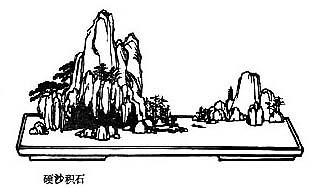孫
子
兵
法
Sun Zi 
 – L'Art de la guerre
– L'Art de la guerre
La stratégie chinoise ou comment s'informer, estimer, diviser, détourner, tromper, et vaincre « sans coup férir ». Tr. Amiot (fr) et Giles (en).
Des propositions de la victoire et de la défaite
Sunzi III. 8.
Si vous êtes dix fois plus fort en nombre que ne l'est l'ennemi, environnez-le de toutes parts ; ne lui laissez aucun passage libre ; faites en sorte qu'il ne puisse ni s'évader pour aller camper ailleurs, ni recevoir le moindre secours. Si vous avez cinq fois plus de monde que lui, disposez tellement votre armée qu'elle puisse l'attaquer par quatre côtés à la fois, lorsqu'il en sera temps. Si l'ennemi est une fois moins fort que vous, contentez-vous de partager votre armée en deux. Mais si de part et d'autre il y a une même quantité de monde, tout ce que vous pouvez faire c'est de hasarder le combat. Si, au contraire, vous êtes moins fort que lui, soyez continuellement sur vos gardes, la plus petite faute serait de la dernière conséquence pour vous. Tâchez de vous mettre à l'abri, et évitez autant que vous le pourrez d'en venir aux mains avec lui.
Amiot
It is the rule in war, if our forces are ten to the enemy's one, to surround him; if five to one, to attack him;1 if twice as numerous, to divide our army into two.2
If equally matched, we can offer battle;3 if slightly inferior in numbers, we can avoid the enemy;4 if quite unequal in every way, we can flee from him.
Giles III.8,9.

L'Art de la guerre – Sun Zi III. 8. – Chinois on/off – Français/English
Alias Sun Tzu, Sun Wu, Sun Tse, Sunzi Bingfa, Souen Tseu, Souen Wou, 孫武.
Le Canon des Poèmes, Les Entretiens, La Grande Étude, Le Juste Milieu, Les Trois Caractères, Le Livre des Mutations, De la Voie et la Vertu, 300 poèmes Tang, L'Art de la guerre, Trente-six stratagèmes
Bienvenue, aide, notes, introduction, table.
Index – Contact – Haut de page
